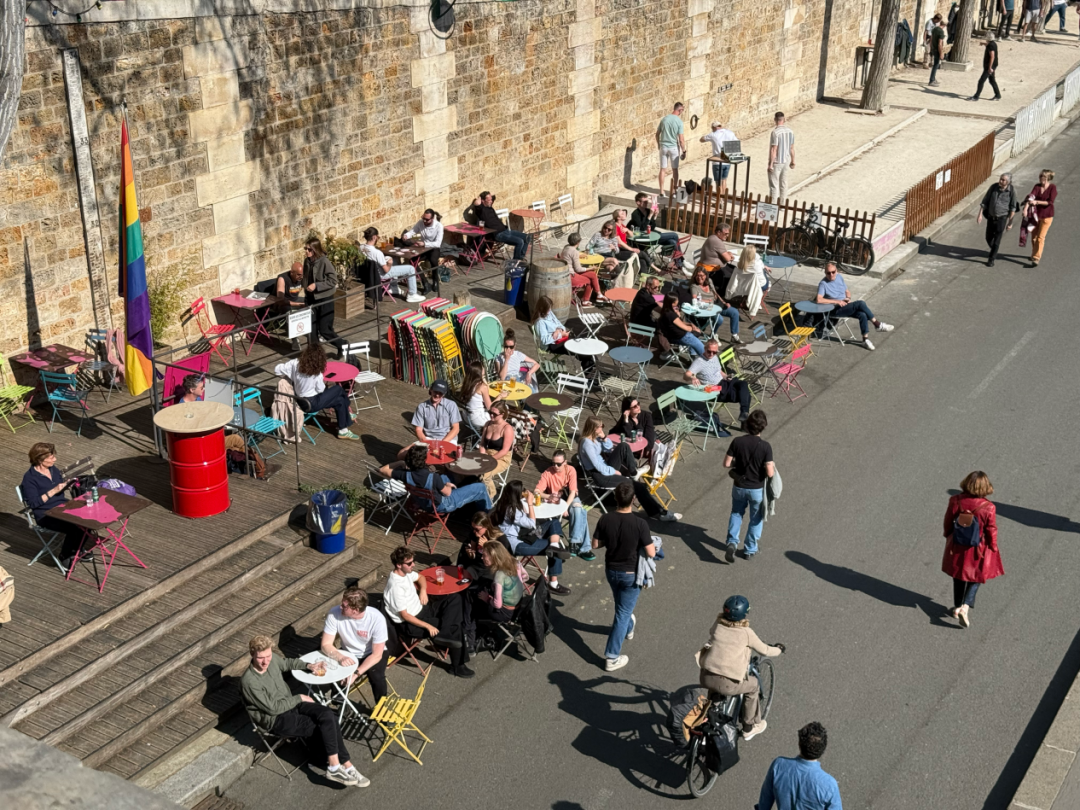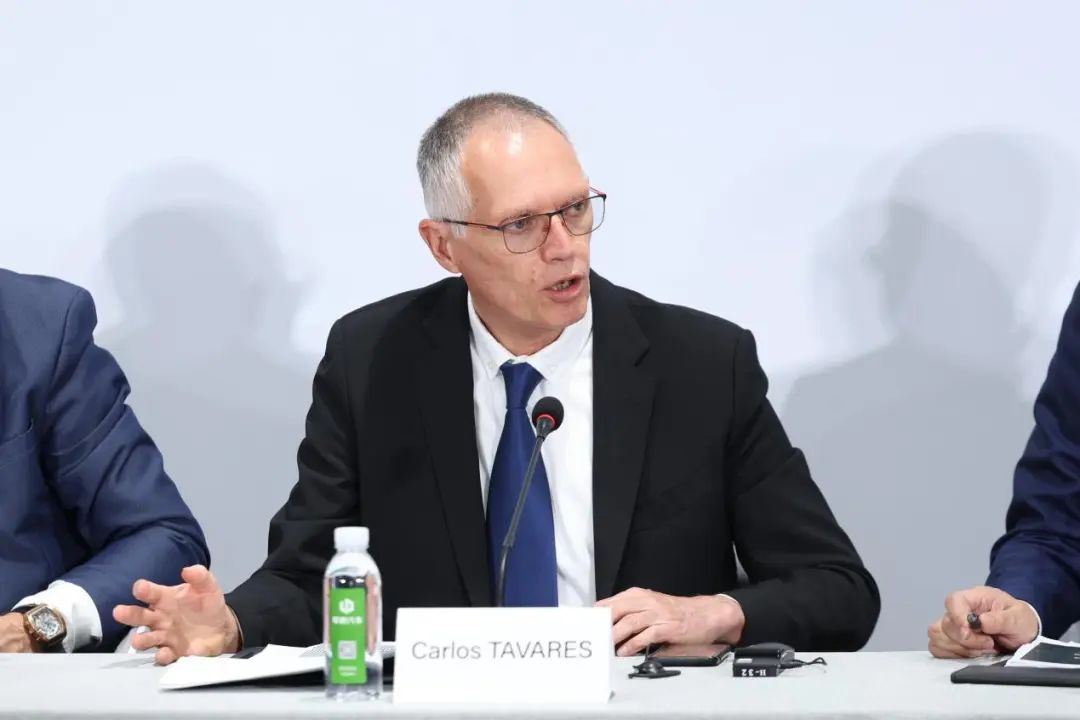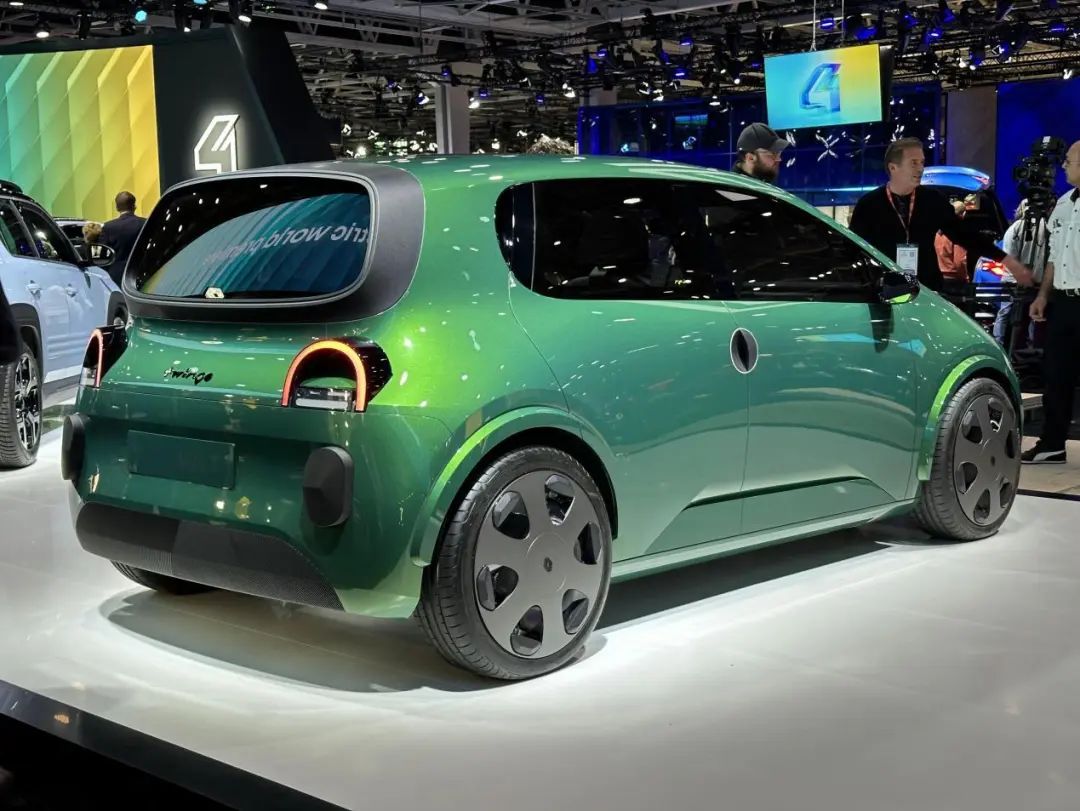Paris Auto Market: Rocking the Cradle on the Cliff's Edge
![]() 04/11 2025
04/11 2025
![]() 561
561
The cradle of French automakers hangs perilously over the edge, yet the French populace remains unhurried.
As the plane descended through the clouds and touched down at Paris Charles de Gaulle Airport with a gentle thud, the underlying anticipation slowly faded. Paris, unchanged in a decade, retained its familiar charm.
The buildings, streets, and traffic remained the same. In early April, the city basked in sunshine, with a brisk wind that suited its current mood. This ambiance hinted at the flavor of a decade past.
"Do you remember, ten years ago, you described the European auto market as the warmth of the setting sun?" My companion replied, "I remember."
Watching cars pass by, the excitement no longer resonated as it once did. Ten years have elapsed, and this warmth has intensified, scorching once-proud French automakers. The flagship store on the Champs-Élysées, a witness to Renault's glory days, has vanished, its over 120-year history swept away by the wind, mirroring the French auto market's rise and fall.
How can we describe the current French auto market? Borrowing from Vladimir Nabokov's "Speak, Memory," it is "The cradle rocks above hell!"—a metaphor for the transformation between eras.
On the streets, joyful teenagers zip by on hoverboards, while elderly men spend leisurely afternoons with a bottle of beer. The cradle of French automakers hangs precariously, yet the French, savoring the sunshine, remain unperturbed.
"Look, it's that simple."
This attitude permeates Paris.
The French have a unique perspective on life, valuing a dignified lifestyle. Leisurely afternoons spent drinking, savoring coffee, basking in the sun, and eating fast food are still considered cultural faux pas in France.
Consequently, France presents many seemingly contradictory phenomena. On one hand, strikes rage; on the other, people celebrate with champagne. Tasks are procrastinated, yet meals are meticulously prepared.
This contradictory Paris, this contradictory France, imbues the place with mystery. Walking through the Left Bank's alleys, past old buildings etched with time, one feels like a long-time resident, thinking, "time is just right."

Some say Germans are rigid, while French are passionate. This reminded me of a saying, "Many new seriousness and many new passions in German spiritual culture have moved to Paris." Seriousness and passion distinguish these two key automotive nations in Europe, embodying distinct cultures.
With the automotive industry as its foundation, Germany now grapples with deep anxiety, fully committing to electrification yet falling short of expectations. Voices intertwine: "We're still the world's best car-producing country" and "No one in Germany truly understands batteries, and we lack the value chain." These sentiments pierce through the Germans' stoic faces.
Despite global challenges, including in the domestic market, the French remain unperturbed, adhering to the attitude, "Look, it's that simple." Unlike Germany, France finds it easier to "make money while lying down."
Paris and France are inextricably linked to any ranking related to "money," such as cash cows and tourism. Annually, up to 90 million tourists flood France, the highest globally—a feat other countries struggle to achieve.
In France, it's effortless.
Accustomed to a steady stream of tourists, the French have mastered earning this money, surpassing $54.5 billion in annual income. With a solid foundation for "making money while lying down," the French, who live life at a leisurely pace, do not pursue efficient money-making—a German trait and a Chinese aspiration.
How slow is the French pace? So slow that even depositing cash in the bank takes until the next day. "Only life" matters to the French, who consume 45 liters of wine per capita annually and spend over 1,300 hours eating per person per year.

To the French, basking in the sunshine trumps making money. Parks teem with people at any hour, daydreaming, reading, chatting. One senses no "warmth of the setting sun," only bright sunshine.
French strikes are as common as drinking bubble tea, so how do they make money? In four words, "decent income."
INSEE data reveals the French average monthly income is around 2,250 euros, equivalent to approximately 17,500 yuan. Even the minimum wage reaches 1,539 euros.
A cup of coffee costs two or three euros, a drink four or five euros, and a cozy afternoon is yours. Visitors to Paris remark on its dual nature: flowing and static. Since 360 AD, when the Roman governor named this city "Paris," over 1,400 years have seen life unfold this way. Centuries-old city walls bear witness to these ingrained habits.
"We fight for 30 days of paid leave but refuse to let life lose its art." This sums up the French, a headache for automakers aiming to boost internal sales circulation.
Standing at the newly repaired entrance of Notre-Dame de Paris, gazing at the sprawling Seine, a sentiment arose, fitting the French auto market at that time. Victor Hugo wrote in "Notre-Dame de Paris," "This is the sun at dusk, but we mistake it for the dawn."
"Why don't the French buy luxury cars?"
To understand the French auto market, one must first comprehend the French.
France's economy doesn't solely rely on tourism and art; it also boasts industries like mining, steel, automobile manufacturing, chemicals, textiles, and food processing, covering almost all critical fields.
The story of French cars is ancient, second only to Germany, the automobile's inventor. Over a hundred years have shaped the French's unwavering driving habits.
The French drive not slowly but sometimes hastily. Even a small hatchback can feel like an off-roader. The French website Topito once dedicated a report on driving skills by region, labeling Parisian drivers the worst.
Driving in Paris is hellish, with incessant honking and traffic jams starting as early as 5 am. France has the most roundabouts, and drivers often turn at 60 mph.
It's no secret that 90% of Parisian cars are small. Data shows the top three best-selling models in France are the Renault Clio, Dacia Sandero, and Peugeot 208.
Hence, a unique phenomenon in France: owning a car isn't a status symbol. An expensive car is seen as vulgar, and meticulous care as "disgusting."
This lesser-known fact begs another question. Contrary to Paris's fashion capital image, luxury cars aren't abundant.
A German automaker once wondered, "Why don't the French buy luxury cars?" Even in affluent areas like Paris's 16th arrondissement, most street-parked cars are family vehicles like Citroen, Peugeot, and Fiat. Even official cars are mid-range family models.
In Paris, what irks Germans is that BMW, Audi, and Mercedes-Benz 56E models often serve as taxis. Of course, not everyone shuns luxury cars; Ferraris, Aston Martins, and more roar through Paris's streets.
However, crowded streets prone to scratches, coupled with young people's profligacy, mean even the best cars sustain damage within a year. Thus, mainstream car purchases in Paris trend towards entry-level small cars and top-end luxury cars, with few mid-range family cars, including 56E models.
Data shows that in February 2025, the top four automotive brands in the French market were French. Four German automakers also ranked in the top ten but didn't match French brands' sales. In Germany, when asked about preferred cars, the answer mirrors the French: "I like cars from my own country."
This unwavering car-buying habit is closing the European auto market, described as "stepping on the gas but not moving forward."
Especially after Stellantis Group ousted Carlos Tavares, who significantly contributed to its profits. Last year, he was CEO of Stellantis Group, the "most profitable automaker in Europe." A year later, he was abruptly fired, a "curtain-less exit." The irreconcilable conflict between Stellantis Group and him added to the European auto market's warmth of the setting sun.

In 2024, four of the five major European automotive groups saw sales decline. Volkswagen Group in Germany fell by 2%, and Stellantis Group's global sales dropped by 15.3%. BMW and Mercedes-Benz fell by around 4%. Only Renault showed a slight increase of 1.6%, but its situation is barely better; the iconic Champs-Élysées flagship store has vanished with time.
Everyone knows European automakers can no longer rest on their laurels. However, over a century-old habits are hard to break. The European market, though vast, is saturated. The current situation is, "The fire is burning outside, but they're still soaking in a hot spring inside."
Fuel vehicle sales are rapidly declining, and new energy products struggle to expand the market, causing European automakers' market share to continue shrinking. Thus, French automakers are in a hurry, but the French are not.
The French believe in "The Count of Monte Cristo's" words, "Didn't the count just tell us? All human wisdom is contained in these five words: wait and hope."
Can hope still be waited for?
It's hard.
The warmth of the setting sun doesn't last long.
So, why not change?
Changes have indeed occurred.
The serious Germans have made the most radical shifts. Volkswagen, all-in on electrification, is still searching for the right path after several years. The French, living life at a leisurely pace, can no longer say "Look, it's that simple" in the electrification transition but lack better solutions.
"Europeans simply don't like pure electric vehicles," BMW's R&D director once said in an interview. In Munich, driving a four-cylinder car is cheaper than an electric one.
This frustration from a few years ago persists. At the 2019 Frankfurt Motor Show, Volkswagen conveyed its ambition to lead: "In about ten years, one out of every two cars we produce in Europe and China will be electric. No traditional automaker pursues its goals as consistently as we do."
Standing on a street devoid of charging piles then, I wondered if Europeans would embrace this in ten years. Six years later, some charging piles dot European streets, and Toyota and BMW's new energy vehicles are more common, but not yet ubiquitous.
Represented by the French, Europeans still haven't "fully accepted electric vehicles." Amidst increasing new energy vehicle penetration globally, many automakers face difficulties selling electric vehicles in the European market. European institution statistics reveal that in 2024, pure electric vehicle sales in Europe were 1,584,761 units, a year-on-year decrease of 15.91%.

Almost all Chinese automakers have retreated, except a few showing growth. Most have seen sales halved. SAIC's MG brand is the only Chinese automaker in the top ten European electric vehicle sales, with 58,097 units sold and a 3.5% market share in 2024, surpassing Hyundai and Kia, long-time European players. During our short visit, we spotted an MG charging on Paris's streets.
BYD, highly anticipated, sold 34,040 units in the European market in 2024, with a 2.1% market share, making it the second-highest selling Chinese automaker after MG. Xiaopeng and NIO performed poorly due to large vehicle models unsuitable for European driving habits.
In 2024, pure electric vehicle sales in France were 139,634 units, a year-on-year decrease of 53.18%. In 2023, sales neared 300,000 units, close to the UK, but now lag by over 230,000 units.
One major reason for low electric vehicle acceptance is high prices. Data shows the average price of electric vehicles on the European market is above 45,000 euros, deterring many. If the price drops to 20,000 euros, it may significantly boost consumer enthusiasm.
Nevertheless, in Paris, when seeking a ride-hailing service, an electric vehicle proves superior to a fuel-powered one, primarily due to its trunk's capacity to accommodate multiple pieces of luggage. During our travels to and from the airport, we utilized a Tesla Model Y and a Citroen. For the French automotive market, the untapped potential demand remains significant and ripe for exploration.
Consequently, unlike past Paris Motor Shows where high-end products traditionally took center stage, last year's event witnessed many European automakers pivoting to attract consumers with affordable electric offerings.
For instance, at the 2024 Paris Motor Show, the Renault Group unveiled its compact electric vehicle, the R4 E-Tech, anticipated to be priced below 35,000 euros. Furthermore, the newly introduced Peugeot E-408, the pure electric variant of the Citroen C3, and the C3 Aircross, all represent low-cost pure electric vehicles.
However, given the reluctance to embrace technologies with vastly different usage habits and the absence of a disposal culture, many French individuals continue to drive manual transmission models. For the French, adopting "intelligent drive" technologies poses an even greater challenge.
This presents a new dilemma for the French government.








